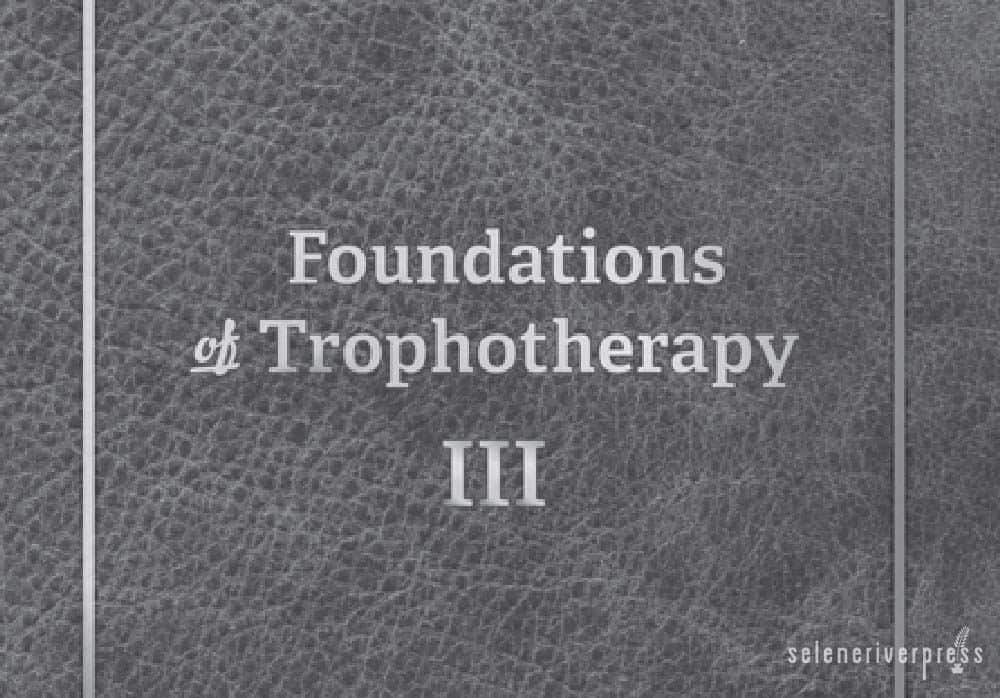Introducing the important third volume in our groundbreaking Foundations of Trophotherapy series. Five chapters. Nine articles. Supplementary excerpts and commentary from Dr. Royal Lee. Resources for further study. All of it shining a spotlight on the diet-cancer connection as seen through the view of some of the twentieth century’s foremost researchers of nutrition. Indeed, Book Three offers hard proof that the link between cancer and nutrition has been a subject of intense research since before the mid-twentieth century.
We’ll leave it to the reader to decide what it means that mainstream medicine is only now starting to make the diet-cancer connection, and only in the most tenuous of terms.
We’ll leave it to the reader to pass judgment on physicians who allied themselves with pharmaceutical companies, all but ignoring the link between skyrocketing consumption of processed foods and skyrocketing rates of disease.
We’ll leave it to the reader to adjudicate the reputations of nutrition-minded doctors who were pushed to the fringe by mainstream medical societies for daring to deviate from the medical orthodoxy of the day.
The researchers and doctors represented in Book Three spent the bulk of their careers gathering evidence on the declining state of American nutrition and warning the rest of us about where such a decline would lead. The only problem? Their research was not wanted and indeed was sometimes mocked. It’s far past time to fix that wrong and give this work the attention it deserves.
In “The War Between Health Foods and Death Foods” (1956) you’ll find Dr. Royal Lee describing the earliest skirmishes in a new kind of conflict, not between nations, but between food that helps you live and food that helps you die. No one recites this tale better and with more provable facts than Dr. Lee.
In “Cancer: A Nutritional Deficiency” (1943), famed Canadian physician J.R. Davidson lays out a theory that was considered, in his own words, “too simple to be believed, too good to be true.” His speculation, backed by multiple case studies, is that cancer itself is a deficiency disease, one that can be prevented and controlled at least in part by a balanced diet high in vitamins.
In “Cancer: Its Cause, Its Prevention, Its Cure” (1949), Dr. Lee asks a chilling question. “Can it be possible that the cancer patient is worth more to the medical monopoly if he cannot find a cure than if he did?” A year of cancer therapy today exceeds most annual incomes. Eliminating sugar from the diet doesn’t cost a thing. The answer could not be more starkly clear.
In “Anti-Malignancy Factors Apparently Present in Organically Grown Foods” (1961), Donald C. Collins, MD, dares to suggest that food can have a powerful effect on your health, even to the point of altering cancer outcomes. He even offers evidence that proves it so. We are left to wonder why his position was so dangerously unorthodox at the time, and ponder if the same is true today.
To read all of the above articles in full, plus five more remarkably farsighted works that explore the intersection between diet and cancer, get yourself a copy of Foundations of Trophotherapy III.
And if you’re new to the series, you owe it to yourself to go back to the beginning. Foundations I untangles the unholy mass of conflicting nutritional misinformation that keeps us jumping from one dangerous health trend to another. Foundations II features groundbreaking research from Dr. Royal Lee and his contemporaries on the art and science of applied nutrition—otherwise known as trophology, the very concept that lends this series its name.
If you believe that mainstream medicine has pushed these important foundational insights to the sidelines for far too long, now is the time to spread the word far and wide, for the benefit of us all.


